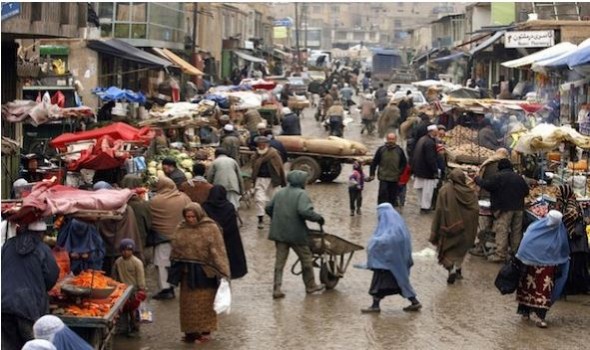War of words over interpreters
War of words over interpreters

At a time when the question of immigration is divisive, there is one group of would be migrants many Britons would welcome.
The UK’s own army of migrant workers includes up to 10,000 men and women who fought in Afghanistan from 2001 to 2014. In that time they employed about 4,000 Afghan civilians, including an unknown number of interpreters who faced many of the same risks as British troops.
At least 26 interpreters were killed and 150 wounded during action in Afghanistan so far. But the risks for local staff did not end when British troops finally left Afghanistan last year.
In Italian there is a saying: “traduttori, traditiri.” It means “to translate is to betray”. It is used by translators the world over to express the difficulty of faithful translation from one language to another. But in the code of the Afghan Taliban, anyone working for the International Security Assistance Force in Afghanistan (ISAF) is a traitor.
Even before the last British troops came home in December 2014, interpreters were being targeted by the Taliban who offered cash rewards for their capture.
But who has betrayed whom? Rafi worked for the British forces in Helmand Province where he was seriously injured by a roadside bomb. He carried on working but after five years left his job because of Taliban threats. He arrived in Britain via Turkey, Italy and France and a journey which, he told Refugee Action, was sometimes more dangerous than being in Helmand.
In Britain, Rafi’s fluent English was suddenly a handicap. He told Refugee Action that UK Border Agency officials initially refused his claim because his English was so good they did not believe he was from Afghanistan. It was not until his case was taken up by the media that he was granted asylum, 17 months after making his claim.
“Barri” was an interpreter for eight months before resigning in deference to his mother’s fears. That made no difference to the Taliban. First they killed his father, then one of his brothers. He sent his mother, younger brother and sister to seek safety in Europe. They tried to cross the Mediterranean. Only his brother survived after the boat in which they were travelling capsized.
When Barri and his brother were granted asylum in Germany yet refused entry to Britain, former British army officers, including Winston Churchill’s grandson, petitioned the British government on behalf of all former British forces’ interpreters in Afghanistan. They saw Britain as betraying its duty.
As Major James Driscoll said, “If a man is prepared to risk his life to keep the streets of the UK safe, then he has the right to walk on those same streets.”
Although some Afghan interpreters have been offered ‘leave to enter’ (but not to work and not necessarily to stay!), the gate is a narrow one. British troops entered Afghanistan in November 2001 but only local staff at work on 19 December 2012, who had served for 12 months and who were directly contracted by the British government, are eligible.
According to a statement by UK Defence Secretary Philip Hammond in 2013, this is likely to mean a maximum of 600 local staff.
To be eligible for resettlement in the UK, local staff must have routinely worked in dangerous and challenging roles in Helmand outside protected bases. Hundreds more who worked before that and who left their jobs for any reason – including threats by the Taliban – are not eligible. By November 2014, only 31 had been allowed into the UK.
The UK resettlement scheme for Afghan interpreters is far more restrictive than the one offered in Iraq where up to 2,000 people, including interpreters, have been admitted to Britain.
In January 2015, the Court of Appeal granted permission for two Afghan interpreters to argue that the British government’s failure to provide a resettlement scheme on a par with that of Iraqi interpreters is discriminatory. Both men had worked for the UK Government in Afghanistan for several years. Their solicitors say they suffered serious injuries in Taliban attacks and have been subjected to intimidation and threats to their life. The case will be tested again in the UK courts when a judicial review is heard later this year.
Philip Hammond says that the British government “wants to encourage local staff to stay in Afghanistan and to use their skills and knowledge to make it stronger, better able to meet the challenges ahead and to seize the opportunities.” It is providing redundancy packages for interpreters who want to stay in Afghanistan.
But, as one Afghan refugee told Migrant Voice, “You can only develop your country if you’re alive.”


